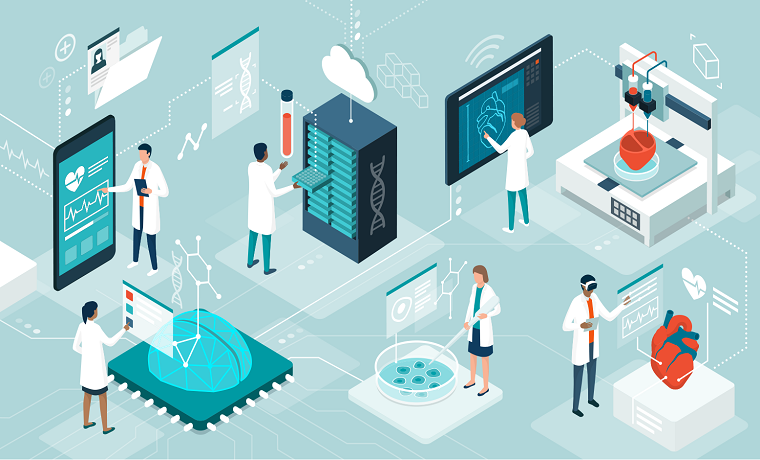The healthcare industry is the most important in the United States, and indeed, the rest of the world as well. Advancements in medical technology have improved the way we treat everything from physical ailments like asthma to mental health issues like ADHD. The good news is that medical manufacturing tech will only continue to improve.
Never have the innovations in the medical manufacturing industry been more needed than right now. With the entire world facing the COVID-19 pandemic, from New York City to Moscow, we’re all counting on the healthcare industries and medical tech innovators to make it go away. Continue reading to learn more about medical manufacturing technology and how it’s bettering society as a whole.
Faster Solutions

Ever since the Second Industrial Revolution when we transitioned from steam to electrical power for mechanical operations, the United States has been one of the world’s leading manufacturers. Not only did converting to electrical power make machines more efficient, but it made them more reliable and durable as well.
Manufacturing technology has had an immense effect on the medical industry. The number one benefit of medical manufacturing technology is the speed with which companies can deliver new products and medicines.
For instance, stand-up case erectors are high-speed machines that create packages for shipping. These automatic case erectors can build up to 30 cartons per minute (CPM). It also has a sealer to ensure your cardboard boxes are secure for shipping during long hauls. The carton erector and case sealer work so silently that you would have to listen with the intent to hear its smooth carton-making process.
Additionally, INSITE’s case erector employs a SCARA robot to automate carton building. The Insite carton erector is one of the tools that allow medical tech manufacturers to get their products on shelves faster than ever. In the medical industry, every second is crucial. That’s why healthcare professionals and medical manufacturers value machinery that promotes speed and efficiency.
More Effective Diagnosis

You don’t have to be a graduate of Harvard to understand the importance of high-quality medical treatment. When patients go to an M.D., they’re literally putting their lives in the hands of their doctor. Patients rely on the efficiency of the treatment they see to get well.
Medical manufacturing tech has dramatically improved the treatments doctors can give their patients. The magnetic resonance imaging (MRI) machine is one of the greatest examples of medical manufacturing tech at work.
MRI machines are used for everything from spotting cancer to doing brain scans on people with ADHD. In fact, many psychologists and M.D.’s thought ADHD was a myth until ADHD specialists like Dr. Ned Hallowell began using MRIs to show brain scans of ADHD patients.
Ever since Dr. Hallowell and other reputed M.D.’s began giving concrete evidence of ADHD cases, there’s been a massive changeover in the way it’s treated. Now, doctors can provide better explanations and diagnoses for kids who have problems with behavior and distractions.
Better Treatment Options

Many people are scared of going to the doctor’s office or hospital because they fear the treatment may be as bad or worse than the illness. One of the greatest benefits of medical manufacturing technology is that it’s given us a wider range of better treatment options.
Non-invasive laser surgery is one of the many great treatment options medical manufacturing tech has graced us with. Because of Lasik surgery, optometrists are better able to treat common vision problems like myopia and astigmatism. The good thing about lasik surgery is that it’s quick and safe. Although lasik cost may seem steep, it’s still worth it compared to the lifelong expense you have to make for contact lenses and eyeglasses.
One of the greatest benefits of laser surgery is that it doesn’t require surgeons to make any incisions. Indeed, laser surgery has cut a lot of time that used to go to recovery.
Medical manufacturing tech has given us faster solutions, more effective diagnoses, and better treatment options. Even with all medical manufacturing tech has achieved, up is still the only way to go!

